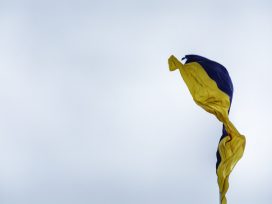News journalism has undergone significant changes in recent time, the speed and intensity of which has engendered a feeling of crisis in the field. The frequency of debates about the future of news media reflect and even magnify this sense. Yet with far-reaching managerial decisions being made, journalists being made redundant and newsrooms being closed, we do indeed need to step back and reflect on the underlying trends in the change in journalism and the consequences for democracy and society.
Many of those debating the future of news media have focused on the impact of technology on news practices. For better or for worse, they suggest, the nature of news and the way it is produced is turned on its head as technology alters how we exchange and evaluate information and views, and how public opinion is formed.
The changes that are often cited in relation to the field of journalism include the increased speed of reporting; changing employment modes; a further blurring of the categories of news and entertainment; a challenge to the authoritative position of professional journalists; and last but not least a challenge to dominant forms of funding and ownership of news production. I will not address each and every one of these trends, but rather provide a broader discussion on the future of news by highlighting some prevalent issues, then turning to the theme of democratisation of news.
These various developments together are held responsible for a decline in the quality of journalism and quantity of investigative journalism. Managerial intervention in newsrooms, changing practices and altered perceptions of journalistic work are all argued to have a detrimental effect on professional autonomy, crucial to well-functioning news media in democratic societies. Furthermore, they supposedly indicate a de-professionalisation of the field of journalism at a time where there is increased output by non-professional actors.
Although the focus in the recent debates around the future of news has been on the technological changes that affect news journalism, we need to explore a range of other factors – social, economic and cultural – that have contributed to the current state of the news industry. An understanding of the context in which media operate is all-important and can, should we so desire, help us find ways to alter media practices. The national, political and economic contexts matter greatly and we know that the state of journalism greatly varies in different countries. The material that informs the analysis here consists mainly of interviews conducted in the UK, but studies elsewhere, in particular in Europe and the US, show a similar picture.
Despite focusing on the changes in news media, I do not wish to imply that there was once a stable, uniform mode of journalism that has made way for a new, uniform mode of journalism. Journalism has always been a field in flux and will not become homogenous in the future. The current changes do, however, raise fundamental questions. For example, to what extent has the position of the public changed in relation to the institution of journalism, traditionally the gatekeeper to public information? Has the role of the journalist as gatekeeper of information in the public domain been impacted on by the introduction of new media technologies in the newsroom, and if so in what ways? These questions relate to the widespread expectation that online access provides citizens with tools to contribute to journalism in new ways, leading to greater diversity of information in the public domain. Some even argue that we are on our way to a more participatory journalism.
In terms of the diversity within traditional media online, abundance of space has supposedly enabled the inclusion of a greater variety of voices and angles. Though most news consumers still get their news from traditional media – television in particular – in many countries the Internet is currently the fastest growing news platform. New media technologies have changed and multiplied the ways in which news can be accessed, but does this mean that there is also an increased amount and diversity of news?
Our recent research has found that UK journalists are “trapped” in what we call an “administrative” news culture, where many journalists are desk-bound and stories are “recycled” from existing material rather than stemming from independent journalism. Interviews and newsroom visits generate a picture of journalists spending a large amount of time monitoring other media, the wires, user-generated content and material produced within the organisation. Rewriting stories gained through constant media monitoring is the main task of many journalists, especially in online newsrooms.
Analysis of the content of online news produced by UK national newspapers and the BBC backed up this finding, revealing that much of the abundant online news is homogenous: news organisations often cover stories from the same angle and different news organisations repeatedly publish the same information in their stories (be they images, quotes or descriptive passages).
The Internet has been said to challenge this lack of diversity and change current power relations within the public domain through so-called User-Generated Content. The technological opportunities for users to be part of the news process has inspired many to suggest that a blurring is taking place between the traditionally stable categories of “producer” and “user”. This, in turn, is supposedly leading to a more diverse public domain, one that reflects “the voices of the many”.
However research shows that the majority of journalists do not view citizen contributions as news production, nor do they wish to provide an enhanced role for users in their media production. Journalists often downplay or reject outright the contributions of “amateurs”. Ways of providing a role for citizens are mainly symbolic: lists with “most-read”, “most-emailed” or “most valued” articles are a popular but safe way of letting the public participate in the presentation of the news. The process of news production, however, remains the domain of the “professional”.
This is not to say that journalists think user generated content has no value at all. Coverage of the election protests in Iran in 2009, the Burmese protests in 2007 and the 7/7 bombings in London in 2005 demonstrate the importance of user contributions in news production. However, the number of examples given by journalists when discussing the value of user contribution is limited – they are exceptional cases such as protest or natural disasters. Moreover, even in these cases, a limited role is ascribed to the user; their contribution is contained to a specific phase of the news production process, namely the newsgathering phase. Or, as one journalist puts it when reflecting on user participation: “it’s not someone writing the story for us”. Even the most avid proponents of UGC consider its advantage to be limited to the “news-gathering potential”. Above all, UGC provides a quick and cheap way of getting to information.
UGC thus introduces a new element of competition between news media. Now, news organisations compete with one another not only for users as audience, but also as news providers. As one interviewee puts it: “you’re in competition to bring people in and use them as a form of information, because people have phones and they take pictures and are more likely to be at a spot than a journalist initially”.
Using UGC for competitive advantage is of course perfectly understandable in light of the economic imperatives of news organisations. As an editor or regional newspapers notes: “we can’t afford to have reporters in every single village in the whole area [that we are operating in]”. However, viewed in light of the promise of democratisation, the question does arise as to whether using UGC is just another measure to cut the budget by employing cheap labour. This is part of an ongoing debate about the outsourcing of salaried work to unpaid amateurs. As one editor remarks: “Bizarrely, people were sending us pictures [of the Glasgow Airport Bombing] and then running back to the scene of the fire to send us more, and they weren’t even being paid – how utterly bizarre.”
Asking journalists how they view the role of the amateur in the news production process provides considerable insight into how they view their own role. Typically, the role of the journalists is seen to start where the role of the audience ends. Even though interviewees are very reflective about their role in the news process, “traditional” values dominate in their thinking. In an environment where they feel they are less and less able to produce “proper” journalism, they struggle to uphold professional values. They maintain that these values set them apart from citizens who contribute to the news process, and argue that their “expert” role is still necessary and demanded in society. Accordingly, there is a strong belief that traditional journalism will survive.
Even though journalists are aware of the commercial realities of their news practice, the notion of the public interest is very much alive. Journalists believe that there remains an important role for them to play in the new media landscape. Is this, as many suggest, a sign that journalists are stuck in their outmoded ways of thinking? I disagree; instead, I suggest that we need to consider whether we want to let go of the journalist as expert who adds value.
Recently there have been many budget cuts in news media organisations, in particular in the number of specialist reporters and foreign correspondents, who are so very important to the diversity and quality of media content. The homogeneity in content that exists today is a result of heavy reliance on press releases and agency material and is a serious threat to the public service function of news media. In understanding the full implications of new media technologies’ impact on the relation between audience and journalists, we need to take into account the economic changes taking place in the newsrooms as well.
These changes, which can be seen as the result of “some combination of technological change, corporate consolidation and neo-liberal governments”, have caused the public interest function of news media to increasingly be put to the test. While news media have always had commercial interests, recent developments challenge the traditional business model of news media and have even questioned the core of journalism: the value of news. Foremost among these developments are the changing consumption patterns of news (with an audience that assumes information, and news, to be free) and the move of advertising revenue to other media organisations, such as news aggregators.
News media have lost a certain amount of control over their content, now easily, and (often) freely distributed, re-published and atomised. This development is not the problem per se, but it does raise the question as to who will pay for the production of news in the future. News aggregators such as Google offer news and generate an income from it, but they do not produce material. It is in this context that we see news organisations struggling to come to terms with the potential of new media; more often than not they lack a successful, innovative appropriation of these technologies. Motivated by commercial interests, the employment of new media has not yet provided a tool for meaningful participation by the public.
While acknowledging that there is still a role for journalists, and that there are grounds for journalists’ scepticism towards user participation, we need to be critical of the “minimalist” view of participation that dominates in journalistic organisations; the endorsed forms of participation are those that “do not touch the core of the power relations” within the profession. Thus, even though participation is “deemed socially and politically beneficial”, and, most importantly, commercially advantageous, the public has “limited potential to ‘wrest power from the few'”. Change does take place, but at the moment mainly “as an element of the perpetual development of capitalist production relations”
The “giddy rhetoric of public empowerment” that accompanied the rise of new media is still in need of countering. And this critique needs to come from within and outside of the profession. There is an ongoing process of change in the news field, and in their everyday practices journalists “live out a tension between tradition and change”. The key issue for the future remains what position journalists will take in the field of news. I would like to invite us to start by asking what role we want them to play.






